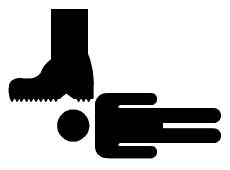Web 3.0
Web 3.0 is the next step in the progression of the tubes that are the internets.
Overview[edit | edit source]
At the tail end of 2008, there was a great need for the next step in the personal internet experience, and thus, Web 3.0 was born. It contains all the creative stylings of Web 2.0™ and integrates the irritation of having your finger stuck in something, and whenever you pull on it, you feel like your going to separate the finger from the joint, but you know you have to do it because the finger is getting cold and you know that means its cutting off circulation, so in panic you cut off your arm. These exciting aspects made Web 3.0 very desirable to a small percentage of users, who then forced it upon everyone else.
Technology[edit | edit source]
Web 3.0 builds on Web2.0™'s content-enabling paradigms: In Web2.0™ the idea of an Editor is obsolete - uninformed[1] geeks with too much time on their hands are responsible for self-selectioneering. By allowing blogs to be composed entirely out of articles from other blogs, we end up with an information super-blender which produces a soup containing all the ingredients known to man but looks, smells, and tastes like shit.
The Master Architect of Web 2.0™, Tim Brooke-Taylor, failed to take into account Gabriel's Greater Internet Fuckwad Theory and mid-2007 saw social meltdown and internet civil war as negative feedback begat negative feedback, culminating in rogue bands of vigilantes roaming the blogosphere leaving derisory comments and sabotaging top-10 polls in 47 languages.
Web 3.0 overcomes this by an enforced code of conduct. Web 3.0 sites will only allow syndication of content generated from an approved pseudo-random sequence of characters. This will ensure that there is only a 9.86x1043:1 chance of an article being coherent, let alone misleading or offensive.
Pronunciation[edit | edit source]
Most scholars, including Plato, (pronounced Plaw-too) believe that the correct pronunciation is "Web Three Point Oh," but that has been fiercely refuted by the internet community, who believe it should be pronounced "Weab * Three Point **** Oh?" (where each asterisk means ramming a butter knife into your eye socket.) It is prophesied that the argument will be settled in the year 2012 when Web 4.0 will come about, although some fringe group of radicals believe that the argument will just shift over to Web 4.0.
What does all this mean to me?[edit | edit source]
Pretty much nothing. 90% of tube riders never noticed Web 2.0, so whats the chance anyone's going to notice the internet slowly regressing into Web 3.0, which some predict will feel like a giant boot with cleats stomping on your head for eternity.
Footnotes[edit | edit source]
- ↑ Owing to a an early revision of this text making it onto Digg and deli.cio.us with a typographical error, many of those geeks are indeed uniformed

